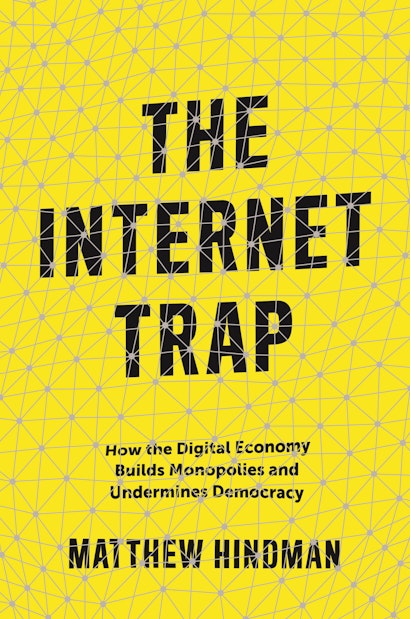The Internet Trap: How the Digital Economy Builds Monopolies and Undermines Democracy


Hardcover
Paperback
ebook
- Sale Price:
- $16.07/£13.29
- Price:
-
$22.95/£18.99 - ISBN:
- Published:
- Sep 25, 2018
- Copyright:
- 2018
- Main_subject:
- Political Science
30% off with code PUP30
The internet was supposed to fragment audiences and make media monopolies impossible. Instead, behemoths like Google and Facebook now dominate the time we spend online—and grab all the profits from the attention economy. The Internet Trap explains how this happened. This provocative and timely book sheds light on the stunning rise of the digital giants and the online struggles of nearly everyone else—and reveals what small players can do to survive in a game that is rigged against them.
Matthew Hindman shows how seemingly tiny advantages in attracting users can snowball over time. The internet has not reduced the cost of reaching audiences—it has merely shifted who pays and how. Challenging some of the most enduring myths of digital life, Hindman explains why the internet is not the postindustrial technology that has been sold to the public, how it has become mathematically impossible for grad students in a garage to beat Google, and why net neutrality alone is no guarantee of an open internet. He also explains why the challenges for local digital news outlets and other small players are worse than they appear and demonstrates what it really takes to grow a digital audience and stay alive in today’s online economy.
The Internet Trap shows why, even on the internet, there is still no such thing as a free audience.
Awards and Recognition
- Co-winner of the 2019 Goldsmith Book Prize for Academic Books, Shorenstein Center on Media, Politics and Public Policy at the Harvard Kennedy School
- Winner of the 2018 Frank Luther Mott-Kappa Tau Alpha Journalism and Mass Communication Research Award
